May 16, 2023
Author:Lisa Martinez
Are you concerned about your dog's sudden lack of appetite? It can be alarming when your furry friend refuses to eat their food, leaving you wondering why won't my dog eat? You may even wonder how to force feed a dog who won't eat or what to feed a dog that won't eat.
In this article, we will explore some of the common reasons why dogs may not eat and what you can do to address this issue
One of the most concerning issues we can face is when our dogs suddenly refuse to eat. There are several reasons why your dog might not be eating. If you're wondering, "Why won't my dog eat?" here are some possible causes to consider.
If your dog has recently started taking a new medication or has received a vaccination, this may be causing a loss of appetite. Certain medications or vaccinations can cause gastrointestinal upset, leading to nausea, vomiting, and diarrhea, which can make your dog reluctant to eat. In some cases, the medication may even cause a change in taste, making your dog dislike their food. In most cases, your dog's appetite should return to normal once their body adjusts to the medication or vaccine.
If your dog has suddenly stopped eating, it's possible that they're not feeling well. Loss of appetite can be a symptom of a variety of illnesses, including infections, gastrointestinal issues, kidney disease, liver disease, and even cancer. If your dog's lack of appetite is accompanied by other symptoms like lethargy, vomiting, or diarrhea, it's important to contact your veterinarian right away. Your vet will be able to carry out tests and diagnose the issue, and recommend the best course of treatment.
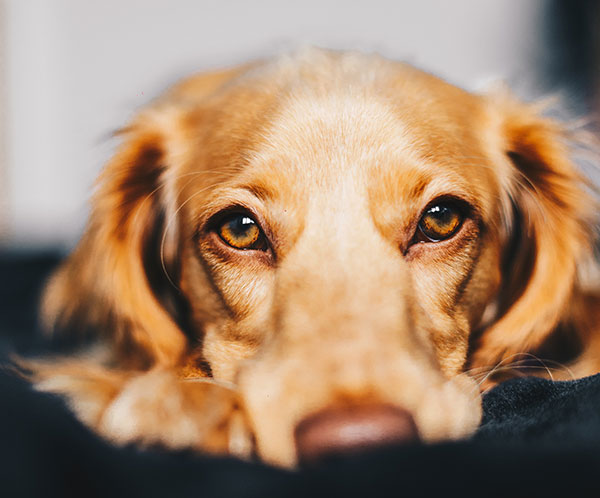
If your dog is used to being around you or your family members all the time, they may become anxious or depressed with your absence. This can lead to a loss of appetite, among other symptoms. In some cases, dogs may also experience separation anxiety, which can cause them to refuse food when their owner is not present.

Dogs can be very sensitive to changes in their environment, and a new or unfamiliar setting can be stressful for them. This can cause your dog to become anxious or nervous, leading to a loss of appetite. Changes to their routine, a new home, or the presence of a new pet or family member can all contribute to feelings of stress or anxiety. If you suspect that your dog's loss of appetite is related to stress or anxiety, try to identify and address the underlying cause of their stress.
Dogs can be picky eaters, and they may refuse to eat if they don't like their food. In some cases, dogs may also have a food allergy or sensitivity that causes them to avoid certain ingredients. Additionally, if your dog's food is stale or has been stored improperly, it may be unappetizing. If you're feeding your dog the same food every day, it's possible they're just looking for a change. To determine if your dog's loss of appetite is due to issues with their food, you may want to try changing their diet or offering them a different type of food. Try different brands and flavors of dog food to find one that your dog enjoys.
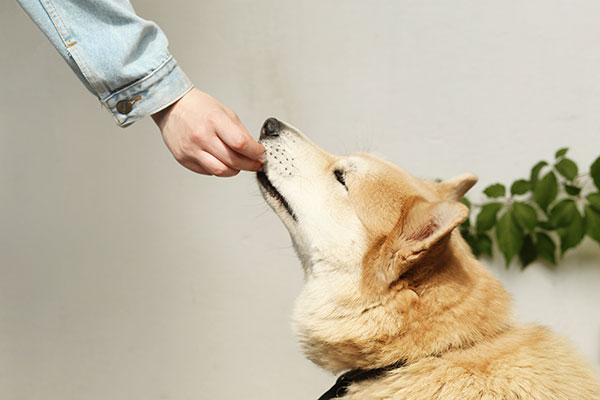
Dental disease is a common cause of loss of appetite in dogs. Dental issues like tooth decay or gum disease can make eating uncomfortable or even painful for your dog. If your dog is experiencing dental problems, they may be hesitant to eat hard kibble, other crunchy foods, or avoid eating altogether. Signs of dental disease include bad breath, swollen gums, loose or missing teeth, and difficulty chewing. If you suspect that your dog's dental health is the issue, take them to your veterinarian for a checkup.

Emotional or mental issues can also cause a loss of appetite in dogs. Just like humans, dogs can experience stress, anxiety, depression, and other emotional or mental disorders that can affect their appetite. If your dog has experienced a traumatic event, such as abuse or neglect, they may develop a fear of food or eating. Similarly, dogs may become anxious or stressed in new or unfamiliar situations, which can lead to a loss of appetite. If you've recently moved or added a new pet to the family, this could be the culprit.
If you've recently introduced a new dog into your household, it's not uncommon for your existing dog to experience a loss of appetite. Dogs are social animals and can become stressed or anxious when their social hierarchy is disrupted. Additionally, your existing dog may feel territorial and view the new dog as a threat to their resources, including food. To help your dog adjust to the new addition, it's important to take introductions slowly and allow your dogs to get to know each other gradually.
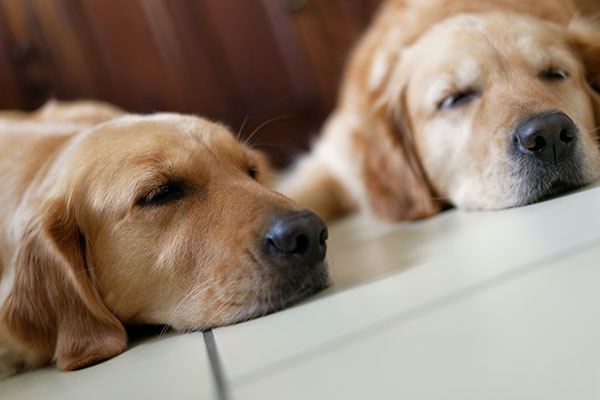
If your dog won't eat, it's important to identify the underlying cause and take appropriate action to ensure your dog's health and well-being. Let's discuss what to do if your dog won't eat and offer some tips to help entice them to eat again.
An automatic pet feeder like the WOpet WiFi Automatic Pet Feeder with Camera can be a great option for encouraging your dog to eat. This feeder allows you to program the amount of food your dog will receive and the times at which the food will be dispensed. This ensures that your dog will have access to food at regular intervals, even if you're not around to physically provide it. This feeder allows you to schedule up to six meals a day, so your dog can eat on a more regular schedule.
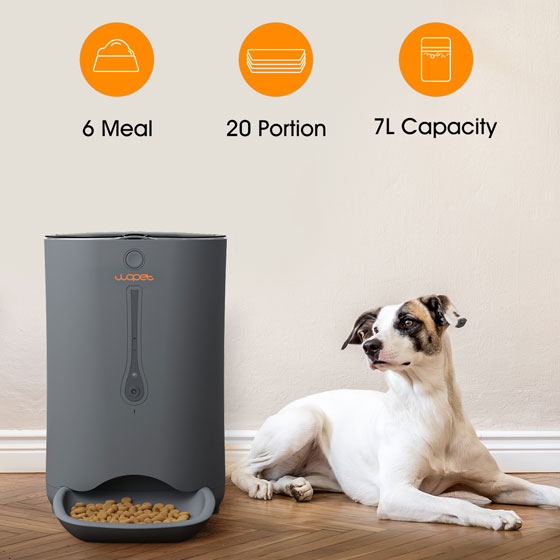
The WOpet Automatic Pet Feeder also has a camera feature, allowing you to monitor your dog's eating habits and behavior. So when you're away from home, you can make sure they're eating properly. The feeder is easy to set up and use, with a simple interface that allows you to program the feeding schedule and amount of food dispensed. The feeder is also easy to clean with a removable food tray.
If your dog is experiencing a loss of appetite, it's important to use WOpet Automatic Pet Feeder in conjunction with other strategies, such as veterinary care and behavioral training, to ensure your dog's overall health and happiness. If your dog's loss of appetite persists or is accompanied by other symptoms, such as lethargy, vomiting, or diarrhea, it's important to consult with your veterinarian.
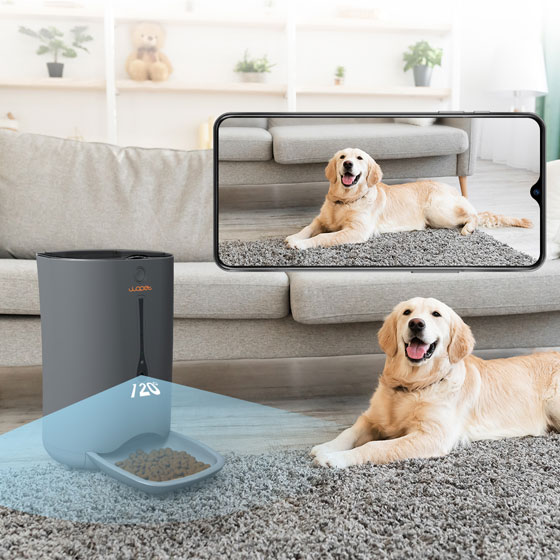
If your dog has suddenly stopped eating their usual food, it's possible that they're simply bored with it. Consider trying a new brand or flavor of food to see if it piques their interest.
Some dogs may prefer smaller, more frequent meals throughout the day, rather than one or two larger meals. Try offering your dog smaller meals more often to see if it helps stimulate their appetite.
Heating up your dog's food can release more of the aroma, making it more appealing to them. Just be sure not to make the food too hot, as this can be dangerous for your dog.
Adding a little bit of chicken broth or other low-sodium flavorings to your dog's food can make it more appealing to them.
If your dog won't eat their regular food, try offering them a high-value treat like a small piece of cooked chicken or turkey. This can help stimulate their appetite and encourage them to eat.
To address dental problems, consult with your veterinarian for recommendations on dental cleaning or treatment. They may recommend softer food or special dental chews to help your dog eat more comfortably.
If you suspect that your dog's loss of appetite is due to stress or anxiety, try to identify and address the underlying cause. You may need to provide them with interactive toys, additional exercise or mental stimulation, calming supplements, or anti-anxiety medications to help your dog feel more relaxed.
Popular Post

What to Feed a Sick Dog With No Appetite? [2025 Guide]
May 16, 2023
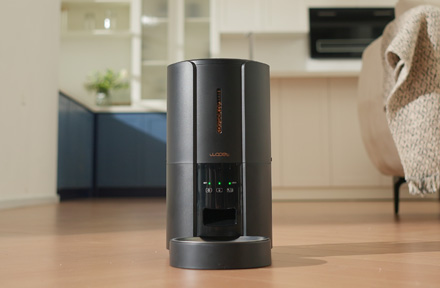
Troubleshooting Common Issues with Automatic Pet Feeders: Tips & Tricks for Pet Owners
Oct 26, 2023

Why Does My Cat Cough After Drinking Water? 8 Potential Reasons
Mar 13, 2023
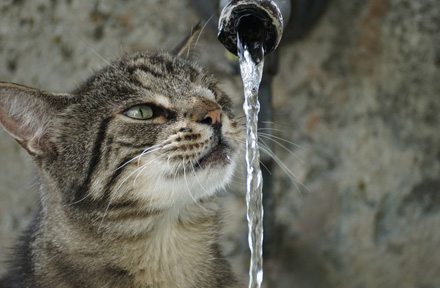
Why is My Cat Throwing up Water? Top 5 Causes Here
Feb 08, 2023

My Cat Only Eats A Little at A Time - What to Do?
Feb 27, 2023
$99.99
$129.99
Copyright © 2025 WOPET. All Rights Reserved.